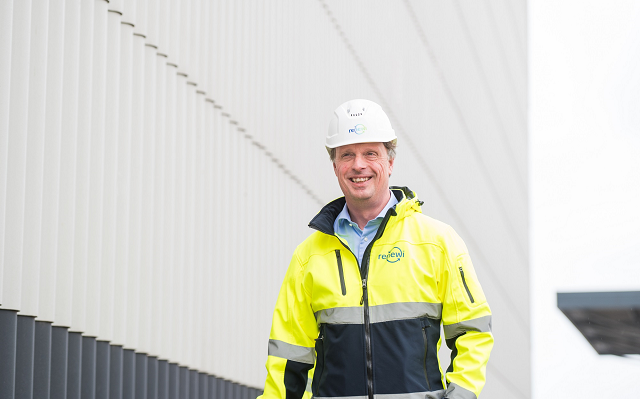From trash to treasure - How Europe’s plans for waste are driving its circular revolution
27 May 2024

By Otto de Bont, CEO of Renewi
It’s a good time to talk about recycling. With Earth Overshoot Day currently projected for early July, the date when humanity surpasses its consumption of the planet’s resources allotted for that year, we are reminded of the importance of recycling and the role it will play in our green transition. Recycling goes far beyond good housekeeping and what each of us put into our dustbins for collection every week. The need to reuse, reduce and recycle the waste we produce to help deliver a better future is grounded in the need to address climate change, but increased material scarcity means it is also becoming a major economic priority. In short, how we manage and reuse our waste is making increased business sense.
Europe is taking note. It is generating too much waste and needs to recycle more. The creation of a genuine circular economy is going to be essential in achieving the European Union’s objective of reducing net GHG emissions reduction by 90% by 2040 and becoming carbon neutral by 2050. It has recognised that recycling and the reuse of materials are important to reduce the need to use precious natural resources and raw materials, and decrease the harm caused to the environment.
However, recycling isn't just about saving the planet and good environmental stewardship; it's also about fortifying Europe's economic resilience and securing its ability to successfully deliver its green and digital transitions. The World Bank estimates that the global economy will need 500% more critical raw materials by 2050. Access to an affordable and sufficient supply of these materials for things like batteries for electric vehicles and renewable energy installations and storage solutions will be essential for Europe to deliver on its sustainability plans. However, Europe already consumes 27% of existing global supply and only produces 3%. As global trade becomes more competitive and supply chains less secure, we will need to do more to safeguard our economy and sustainability agenda.
While the need and importance for Europe to develop a circular economy at scale is not new, European policymakers have understood the immediate challenge. In 2022, recycled material only accounted for 11.5% of the material currently in circulation, an increase of less than one percentage point since 2010. Hardly a revolution, just yet. But momentum is building, and major change is coming largely driven by new commercial realities, the legislative push to decarbonise, changing geopolitics and global trade.
Getting to scale is going to be key. From Amsterdam to Athens, Stockholm to Seville, policymakers are setting out major new targets across all major waste streams to drive recycling and new waste management goals. Ensuring that more recycled materials make their way into the value chain isn’t just about circularity. Their carbon footprint is far lower than virgin materials, so it just makes sense to invest in more recycling. It’s a win for the planet and paves our path to net zero.
However, Europe is neither comparable nor harmonised in its approach. It is not yet uniform in its recycling rates which vary considerably between different countries.
Consequently, an emerging European and national regulatory framework aims to double the use of recycled materials, in terms of its share in the total amount of materials used by the economy between 2020 and 2030. This will create significant new capacity, driving the need to invest in new infrastructure, facilities, and services at the national, regional and local levels, driving demand for new products and services. Take food as an example. The EU’s proposed revision of its Waste Framework Directive (2025) will potentially seek to secure a 10% reduction in waste generated from food processing and manufacturing in all EU countries by 2030; and a possible 30% per capita reduction in food waste generated by households, retail and restaurants and other distribution services. That’s a major boost in the EU’s ambitions.
Best practice could be an important catalyst, providing a roadmap for the changes that are needed. To prove that it can be done, The Netherlands and Belgium are two out of nine EU countries that are already achieving recycling rates (for both municipal waste and total packaging waste) of 50% or higher, ahead of the 2025 EU targets. Both are on the road to a full circular economy.
Optimising Europe’s waste management has become a business and policy priority, creating major new drivers for growth and investment in the recycling sector. But to anticipate for and enable long-term planning and investment, the sector still needs clear, consistent and ambitious policies to be put in place to fully unlock the value of waste. In essence, waste is no longer just trash. It’s become a valuable resource, a treasure to better exploit. From critical raw materials in electronic devices, the rubble from construction materials, uneaten food to glass and paper, the more we recycle, we not only become more sustainable, the more robust our economy will be. Vive la révolution!

